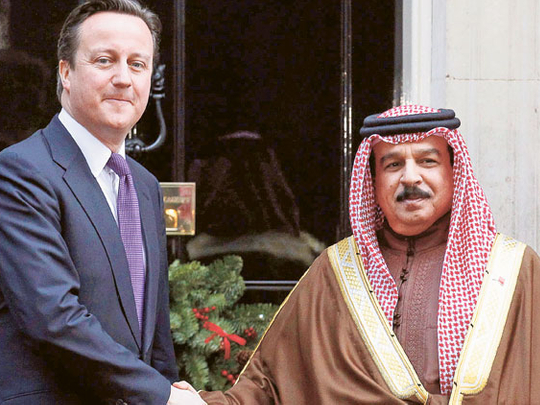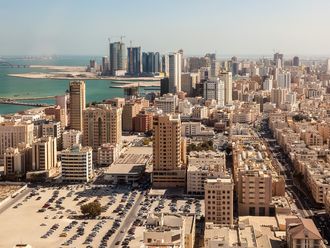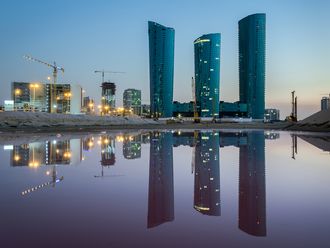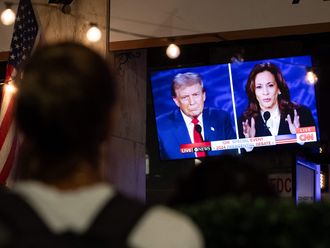
London: The King of Bahrain has defended his record on anti-government protests, insisting it was not government policy "to go and kill people on the roads" and that Bahraini security forces did not indulge in "ethnic cleansing or genocide".
King Hamad Bin Eisa Al Khalifa, who was educated at Sandhurst, blamed Syria and Iran for "stirring up our people". He claimed the regime had evidence that Syria was training young Bahrainis to overthrow the ruling family.
Responding to the conclusions of an independent commission published last month, which found the Bahraini police had used excessive force against anti-government protests, King Hamad said he would implement wide-ranging reforms with the aim of establishing a "kingdom of tolerance" in the state.
In an exclusive interview with The Daily Telegraph, his first since Bahrain suffered violent protests in February, King Hamad readily accepted that the protests had been mishandled, but said this was due to individuals in the security forces rather than Bahrain's government.
"What happened was the result of individual acts, not government policy," he said.
"It is not the policy of the Ministry of Interior to go and kill people on the roads. The policemen and soldiers involved in the killings did not take notice of the discipline side of matters.
‘Excessive force'
"If people have done something wrong then they should be held accountable. We have removed people from positions of authority so that this does not happen again."
King Hamad has implemented a number of reforms since the publication of the report by Professor Sharif Bassiouni, a former UN human rights lawyer, which concluded the security forces had used "excessive force" against demonstrators.
Thirty-five people died and more than 1,600 were detained without charge. The report found that many detainees had suffered "physical and psychological torture" such as being whipped, given electric shocks and threatened with rape to extract confessions.
Twenty Bahraini police officers have been prosecuted, including those said to be responsible for the torturing to death of five demonstrators. The head of the National Security Agency has been replaced. A group of medics jailed for participating in the protests have had their trials annulled and been released on bail, even though the commission found evidence that some had fabricated anti-Bahrain stories for the international media.
King Hamad has hired John Yates, a former Scotland Yard assistant commissioner, and the former police chief of Miami, to oversee an overhaul of the country's security apparatus.
After talks with David Cameron at Downing Street on Monday, King Hamad said he remained committed to implementing the reforms recommended by the commission, which he personally authorised in the aftermath of the violent clashes.
"I care about Bahrain. Bahrain is very dear to me. I will not allow people to play around with our laws," he said and added he was prompted to establish the inquiry into the disturbances because of what he believed were misleading reports. "What began as a protest over better living standards quickly became a call for regime change," he said.
Outside involvement
"This was an attempt to move attention away from the problems in Syria and Iran and make people look instead at Bahrain, Saudi Arabia and Kuwait."
"We have evidence that a number of Bahrainis who oppose our government are being trained in Syria," he said. "I have seen the files and we have notified the Syrian authorities, but they deny any involvement."
Bahrain is constantly under attack from Iran's government-controlled media, which has accused the ruling family of persecuting the country's Shiite population.
King Hamad said the independent commission had found no evidence of this. "There is no ethnic cleansing in Bahrain, no mass genocide, no policy of killing innocent people," he said.
— The Telegraph Group Limited, London, 2011











